Lights out in Liege: Sky's low-key final bow
The feeling of an end of an era is only notable by its absence
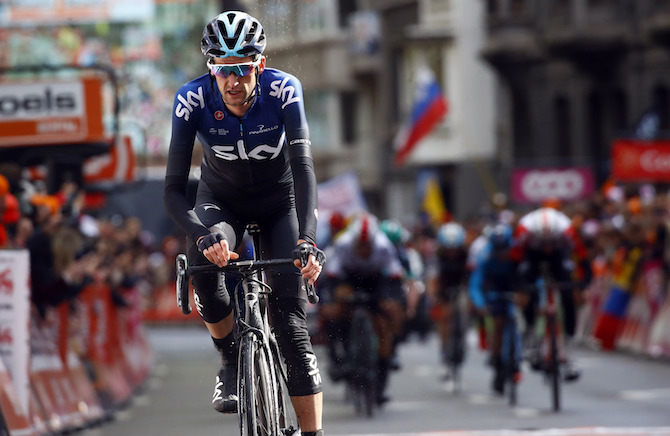
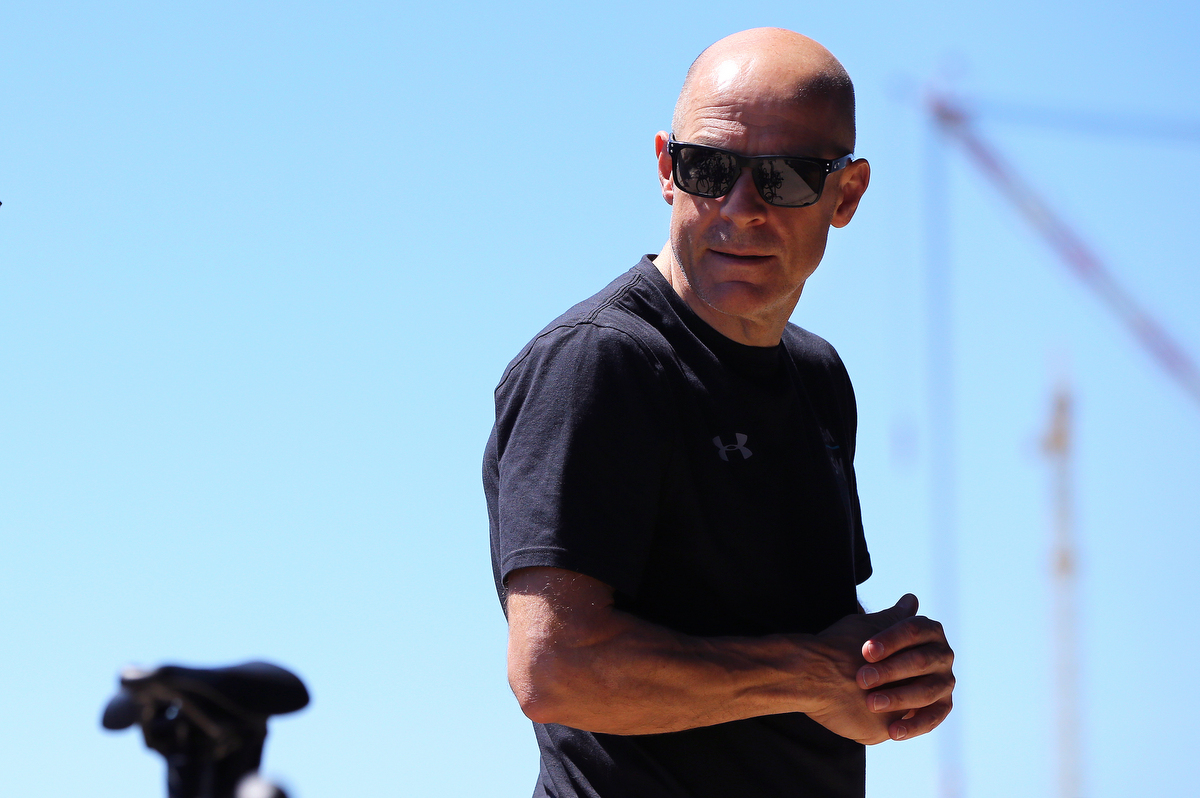
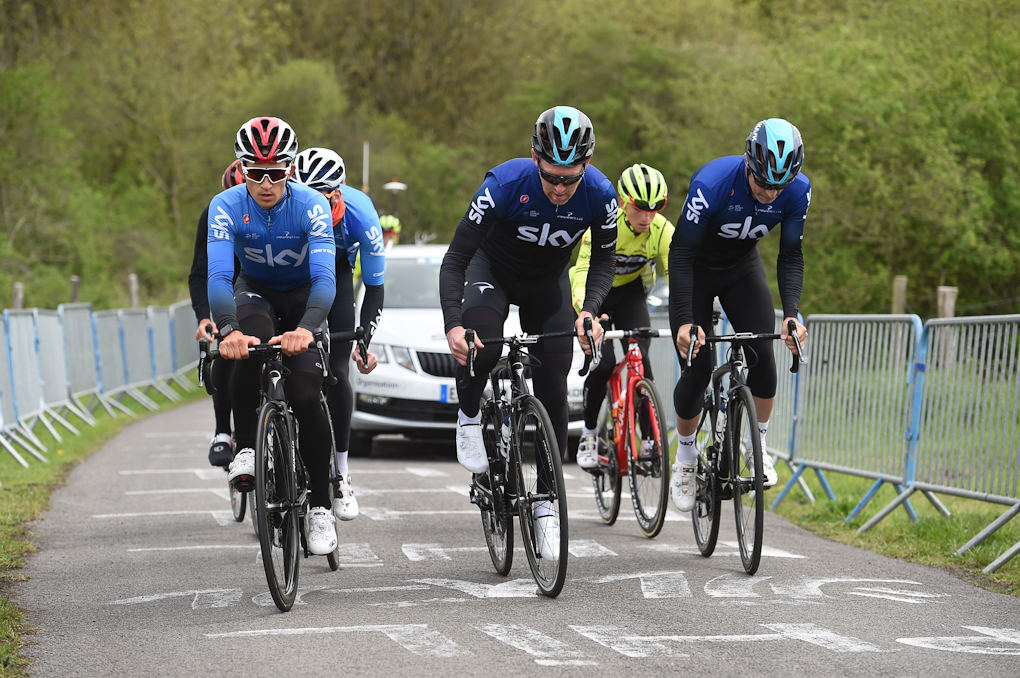
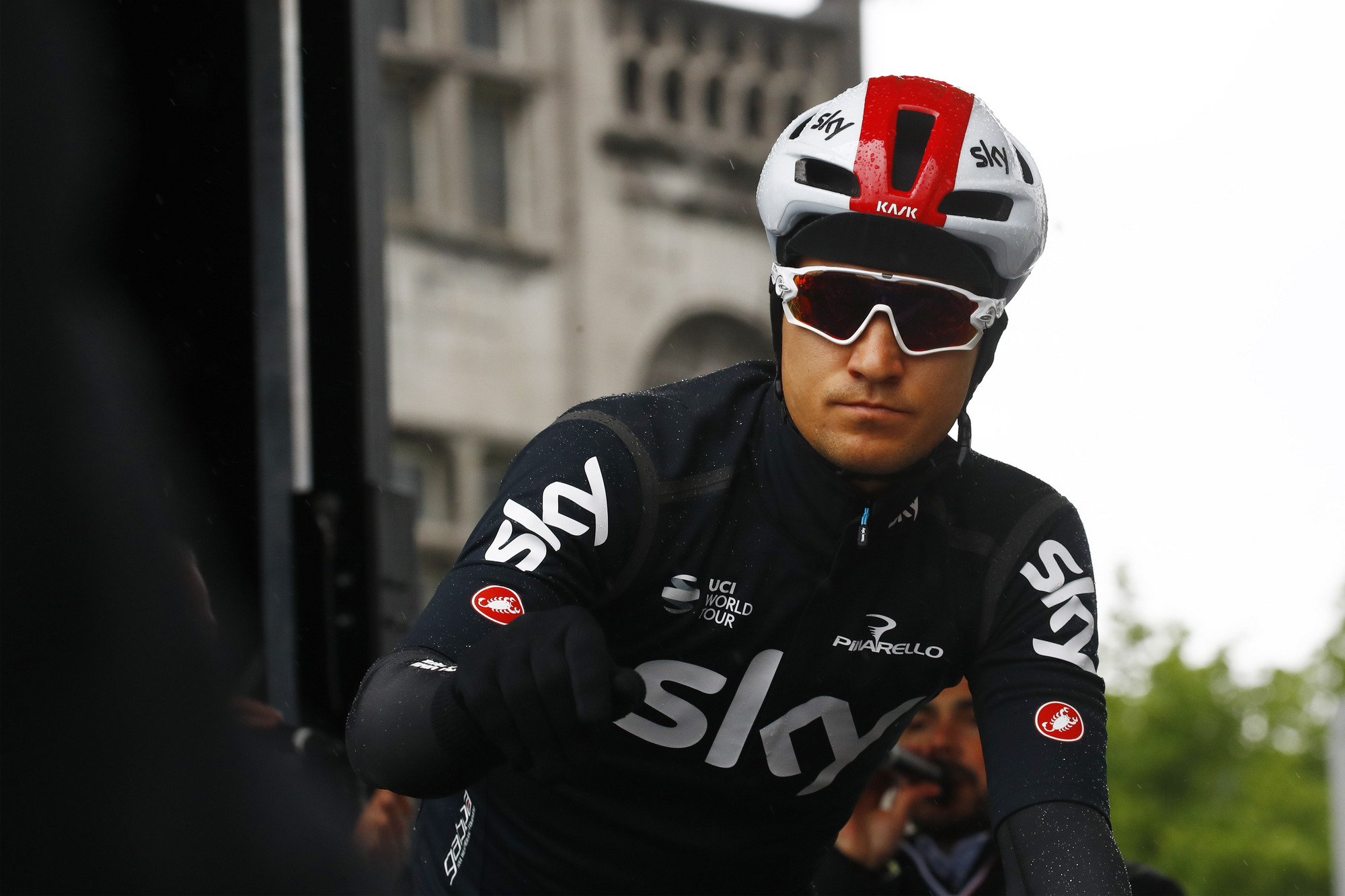
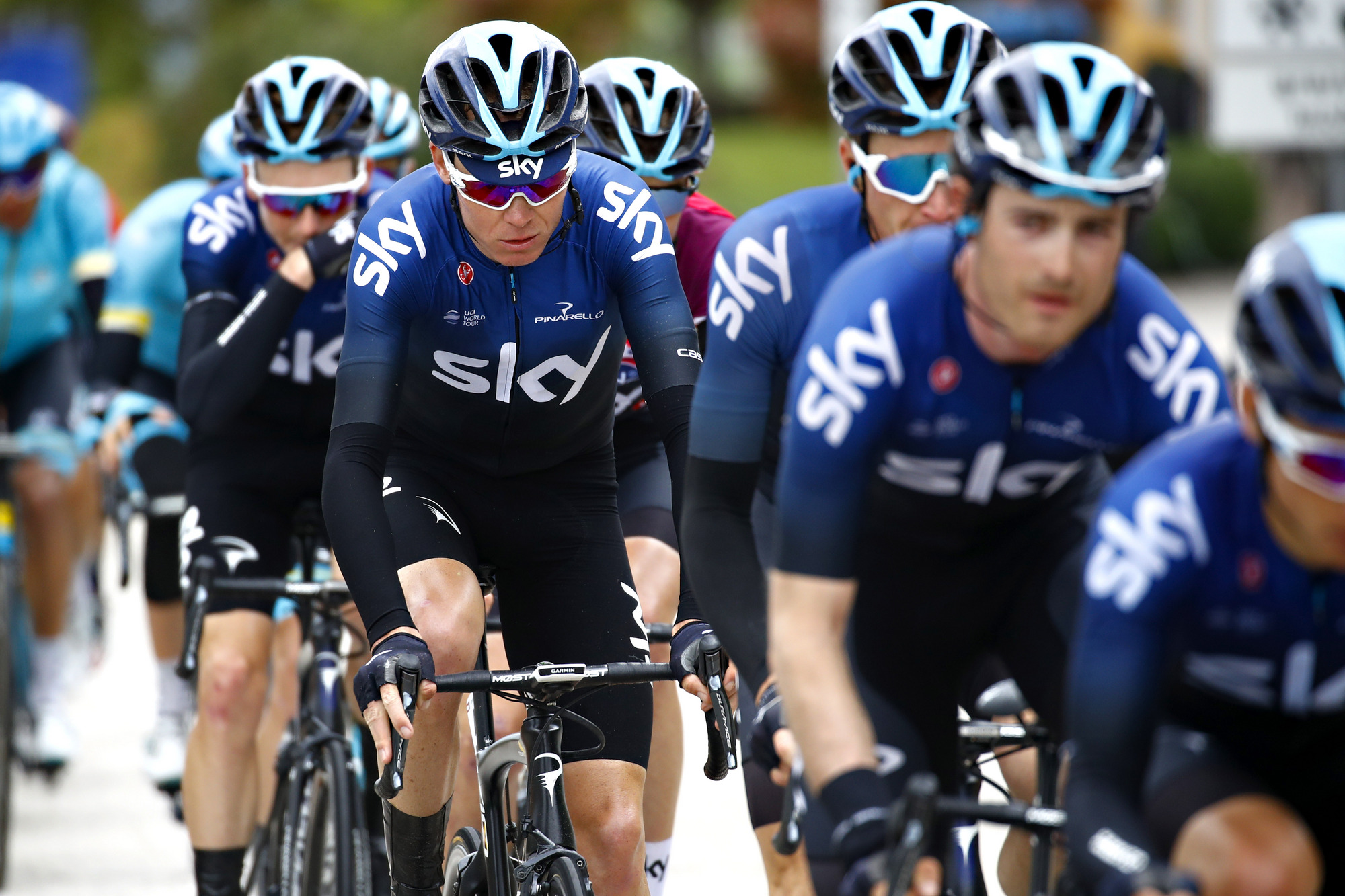
It’s nine o’clock in the morning on Sunday April 28, 2019, and somewhere in the middle of Liege, Belgium, the familiar black shape of the Team Sky bus stands next to an anonymous bus-stop on one side of a wet, windswept square. The riders are gathered inside, waiting for the rain to stop teeming down before the race starts – or, at least, hoping.
It doesn’t happen. Rather, the rain grows steadily heavier and, finally, the seven, enshrouded in helmets and dark wet weather gear, swing out of the bus a few minutes before 10am, when the 2019 Liège-Bastogne-Liège - and what will be Team Sky’s last race before they become Team Ineos - gets underway.
Sky are bowing out in the first Monument of the two they have won to date but, at Liege at least, the feeling of a curtain falling on an era is only notable by its almost complete absence.
True, one Sky rider shouts ‘thank you, thank you’ in English to the half dozen or so fans watching proceedings from the other side of the barriers as he pedals away. If he is thanking them for their support over the years, then that’s as far is it goes.
As if to underline the underwhelming nature of it all, it turns out there are no guests or VIPs for Team Sky’s last race. Nor is there more support than the half dozen fans across the barriers and some of Michal Kwiatkowski’s family on the other side of the bus, waving a large, bedraggled Polish flag. Only a handful of journalists approach the bus in the hour before the start. The riders pose for one group selfie to commemorate the occasion, but as it happens inside the bus, the only visible evidence for the public is when a photo appears on the team’s website a couple of hours later.
Then they are gone, off to the waterlogged start 100 metres away, leaving only a mechanic packing away a spare bike and team boss Dave Brailsford adopting his usual posture of walking up and down and talking into his mobile phone.
It might seem surprising that Sky’s last race start is such a low-key event. You could argue, perhaps, that the less fuss made about Sky going, presumably the bigger the splash there will be when Ineos hove into view later this week. But the underlying reasoning, it turns out, is simply that maintaining a ‘business as usual’ atmosphere by and large helps keep the day’s immediate goals in sight.
Get The Leadout Newsletter
The latest race content, interviews, features, reviews and expert buying guides, direct to your inbox!
“You always think it would be nice to win a last race for Sky, just as you think of course it’d be nice to win the first race for Team Ineos but, at the same time, I’m a professional, I always want to win and perform well, because I’m also doing this for myself,” Michal Kwiatkowski tells Cyclingnews on the Saturday, the day before the race.
“So I don’t think it [Sky ending] gives me an extra boost, because I always give it 100 per cent anyway. At the end of the day, I have to focus on what I have to do: go to the start in the five degree temperature and the rain, get through to the Cote de Wanne, the Cote de la Redoute, the Roche aux Faucons. That’s what’s going through my mind - not that it is Sky’s last event.”

So what does the transition mean in practical terms? As Kwiatkowski sees it, “I’m one of the luckiest guys, because I’ve got a break and I start back in the Dauphine [in June], so I’ve got a smooth transition. But I know how hard people have been working to make it happen, so it’s not an easy task, but it’s wonderful that Ineos came to cycling and that the management found a sponsor so quickly. If we look at it now, the whole process been quite quick.”
As for Gabriel Rasch and Oli Cookson, the directors for Team Sky’s last race, see it, “It’s there but, in any case, Liege is a massive objective, whatever.” Cookson does, however, argue that it does mark the end of an era, because “Team Sky have changed the landscape of professional cycling, they’ve pushed the sport forward.”
Changing a sponsor mid-season is “a bit strange,” says Rasch. “A lot of people have been super-busy, but thankfully I’ve been doing nothing else than my normal stuff.”
“There was a conscious decision to do it like that and not affect performance,” Cookson adds. “So maximum respect and congratulations to all those people behind the scenes for what’s going on.”
“We have what we need here,” adds Rasch. “The one difference in Liege is that we’ve got an extra truck we didn’t really need, actually, but that’s about it.” He confirms that, once they knew the sponsor was in, the actual change to Ineos has all but crept up on them, to the point where “it was only a couple of days ago that we even started talking about it”.
Cookson points out that there is a definite advantage to changing sponsors mid-season, in that had it happened in winter, there would have been a danger of disruption to the whole process of pushing on into next year.
“The physical element, if you like, of vehicles, clothing, blah blah blah, that will have been dealt with. We have certain information, but they’re not bombarding us with it. But whatever happens with a change, we’re still the same riders, still the same staff. We’re still the same team.”
Seven hours later on Sunday, Wout Poels, a former winner of Liege, finishes as Sky’s best-placed rider again, in 10th, whilst Kwiatkowski places 12th. It’s a sound result, even if nobody could say Sky’s impact on the overall outcome of the race was huge - the most notable contribution was, perhaps, when they joined forces with Deceuninck-Quick Step some 100 kilometres from the line and the bunch split.
But it was, if you like, a quietly respectable showing, and curiously similar to 2010, Sky’s first year in the peloton, when Simon Gerrans was Sky’s best finisher in Liege in 11th. For the record, Bradley Wiggins came 71st that day and a certain Chris Froome third last in 135th.
Nine years on, the Sky logo has gone, and Ineos are in as of Tuesday. How much of a real break it actually represents, only time will tell.
Alasdair Fotheringham has been reporting on cycling since 1991. He has covered every Tour de France since 1992 bar one, as well as numerous other bike races of all shapes and sizes, ranging from the Olympic Games in 2008 to the now sadly defunct Subida a Urkiola hill climb in Spain. As well as working for Cyclingnews, he has also written for The Independent, The Guardian, ProCycling, The Express and Reuters.
